Walter Remak Scholar
The Walter A. Remak Scholarship benefits undergraduate or graduate students in the School of Public Health who plan to pursue public health work in South Africa.
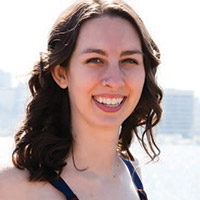
Katie Reynolds (MPH student, Health Services) is spending the summer in South Africa supporting a team of clinicians, engineers and scientists from the University of California, San Francisco. “Funding from the Walter A. Remak Scholarship will enable me to tackle global health disparities in maternal and child health in the communities surrounding Durban,” she says. The team has developed the Smart Diaphragm, a device designed to determine whether a pregnant woman is at high risk for preterm labor.
Reynolds will help conduct interviews and focus groups to explore women’s attitudes and willingness to wear the device during pregnancy, the cultural beliefs surrounding preterm birth, and the area-specific barriers for implementing a device like the Smart Diaphragm. “This could open up an earlier window for intervention and have far-reaching health impacts for mothers and babies,” she says.
Earlier this year, Ben and Nancy Remak decided to endow the Walter Remak Scholarship Fund, securing the fund in perpetuity and guaranteeing students like Reynolds can continue to do important work in South Africa. The Remak Scholarship Fund honors the late Walter Remak, who had a deep connection with South Africa and its people.
Omenn Award Winners
The Gilbert S. Omenn Student Award for Academic Excellence recognizes outstanding achievements by two graduate students annually in the School of Public Health.
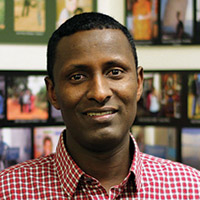
Farah Mohamed (MPH, Global Health) was an active leader and exceptional student in both his Master’s in Public Health and Master’s in Social Work degree programs at the UW. “I have learned how public health can be a powerful tool for social justice,” he says. During his practicum, Mohamed strengthened the foundation for what is now a partnership between Health Alliance International and the Somali Health Board. This relationship has the potential to benefit thousands of refugees and immigrants in the Seattle area—a community Mohamed is personally and professionally committed to. “I know what it means to be a refugee,” he says. “Refugees have undergone traumatic experiences back home and it is another hard experience to try to build a new life here when they arrive.”
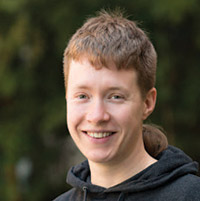
Jean Morrison (PhD, Biostatistics) loves answering scientific questions. While at the UW, she participated in a number of large-scale studies that used genomic sequencing data to identify factors that contribute to disparities in health outcomes. “I like working with problems that have public health applications because I want to help identify solutions that could be useful to someone at some point,” Morrison says. She played an integral role on a landmark epidemiological study called the Hispanic Community Health Study/Study of Latinos. The PhD program, she says, offered her plenty of opportunities for collaboration within and outside the department and gave her the space to “do good science.”
Outside of academic work, Morrison enjoys making meaningful contributions to the community through volunteer work. She volunteers for the King County 24-hour crisis line.
Grayston-Day Fellows
The Grayston-Day Fellowship supports tuition and other educational expenses of graduate students in the School. Faculty members nominate students to receive awards based on financial need, merit and diverse perspectives.
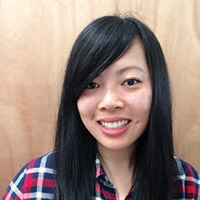
Amanda Chin (MHA student, Health Services) is not only a student, she also supports her parents and three younger siblings. She plans to use her MHA degree to ease access to care for patients who have difficulty navigating the complex health system. She is also focused on the larger built environment and how it affects health. Receiving the Grayston-Day Fellowship means she’ll be able to work fewer hours and focus more of her time on studies. “The greatest impact is feeling the support from faculty, staff, and my peers, and knowing that they believe in me,” Chin says. “I am motivated more than ever to work harder towards my goals and making the community a better place.”
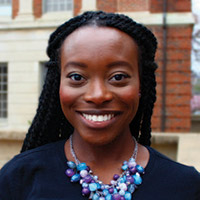
Shadae Paul (MPH student, Global Health) was a Peace Corps Volunteer in the Republic of Fiji, where she worked on health education and wellness promotion activities, including at a local prison. Paul intends to pursue both an MPH and MPA while at the UW. She currently works at the Lombardi Comprehensive Cancer Center at Georgetown University on a quantitative study on the impact of the arts in palliative medicine. The study hopes to show the benefits of incorporating the arts into the traditional model of healthcare. After graduation, she plans to work on improving maternal and child health outcomes in Latin America and the Caribbean. “The Grayston-Day Fellowship is such a wonderful blessing,” she says.
SPH Endowed Fellows
The SPH Endowed Fellowship provides support to one PhD student and one master’s student based on academic merit and leadership potential in the field of public health.
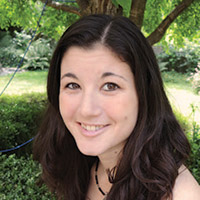
Marielle Goyette (PhD student, Epidemiology) has a passion for sexual and reproductive health. For her PhD, she is looking at the impact of assisted partner services (APS) on HIV treatment and prevention in Kenya and King County. APS is a public health strategy used to test and treat the sexual partners of infected individuals. “The SPH Endowed Fellowship will help support my education expenses and allow me to improve how APS works in various high-risk populations locally and globally,” Goyette says. She plans to dedicate her career to improving HIV partner services—an approach that has the potential to curb the HIV epidemic.
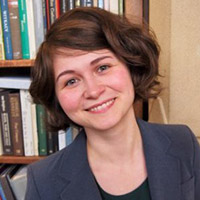
Sara Marquis (MPH student, Health Services) is the first in her family to attend college. She has also witnessed on a very personal level how health disparities affect lives. Marquis cares about the treatment of mentally ill individuals and the factors that may lead to incarceration. She is developing pre-court diversion programs that will connect patients with valuable community resources.
“This scholarship will help offset my significant student loan debt and may allow me to work fewer hours at my part-time job so I can better focus on these projects,” Marquis says. She hopes to work with public health and correctional agencies to divert mentally ill individuals from entering the justice system in King County.
Give now to support students like these!
